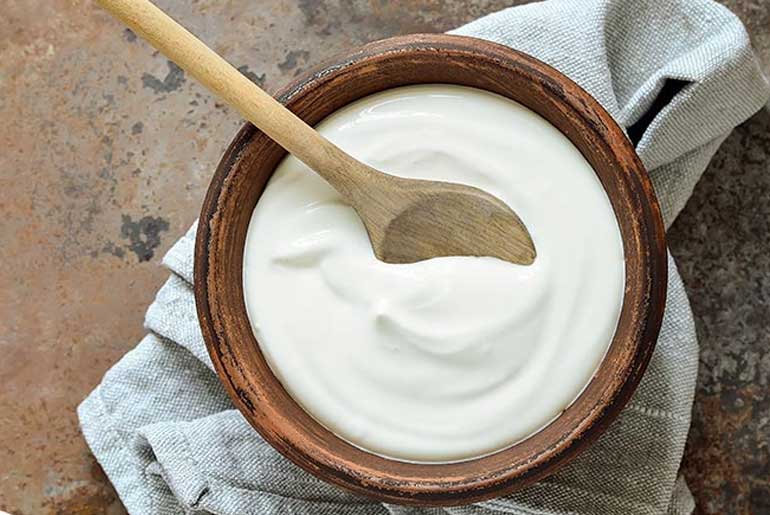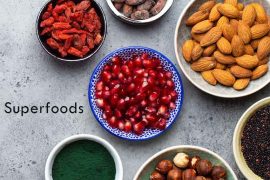Exploring alternative milk sources for making curd, such as coconut, almond, or groundnut milk, offers not only a diverse culinary experience but also potential health benefits. Homemade curd from coconut milk, prepared using the double boiler method, is noted for its digestive health advantages. Similarly, almond milk or groundnut milk curd provides alternatives that are ethical and environmentally conscious, being plant-based and vegan. These plant-based milks curds boast advantages such as absence of cholesterol, hormones, lactose, and additives typically found in dairy curd.
Moreover, vegan curd contains beneficial bacterial cultures that support gut health and enhance overall immunity, reducing the likelihood of allergic reactions and infections. While both dairy and vegan curd offer essential nutrients like calcium, protein, fats, and B-complex vitamins, the composition may vary slightly in quantity and density. Nonetheless, opting for plant-based curd aligns with ethical considerations and can be a flavorful and nutritious addition to one’s diet.
Homemade curd made from plant-based milks offers several advantages:
- Probiotics: Fermented with probiotic cultures, these curds can support gut health by promoting beneficial bacteria, similar to traditional yogurt. Probiotics are known to aid digestion and boost the immune system.
- Lactose-Free: Ideal for individuals with lactose intolerance or dairy allergies, as they contain no lactose or dairy products. This makes them a suitable alternative for those who experience discomfort or adverse reactions to dairy.
- Plant-Based Nutrients: These curds provide a variety of plant-based nutrients, enriching the diet with essential vitamins, minerals, and antioxidants. They can be easily incorporated into vegan and vegetarian diets, offering a source of protein, healthy fats, vitamins, and minerals without animal products.
Here’s how to make curds and their respective advantages:
Coconut Milk Curd:
- Heat coconut milk using a double boiler until warm (not hot).
- Add a probiotic capsule or a small amount of existing dairy-free yogurt as a starter culture.
- Mix well and pour into a clean container.
- Cover and keep in a warm place for 8-12 hours or until it thickens.
Benefits:
- Rich in Healthy Fats: Contains medium-chain triglycerides (MCTs) beneficial for weight management and quick energy.
- Vitamins and Minerals: Contains vitamins C, E, B vitamins, and minerals like magnesium and potassium.
- Antioxidants: May help reduce inflammation and support immune health.
Groundnut (Peanut) Milk Curd:
- Blend roasted peanuts with water to make peanut milk, then strain it.
- Heat the peanut milk until warm.
- Add a starter culture (probiotic capsule or existing dairy-free yogurt).
- Mix well and pour into a clean container.
- Cover and keep in a warm place for 8-12 hours or until it thickens.
Benefits:
- Protein-rich: High in protein essential for muscle repair and growth.
- Healthy Fats: Contains monounsaturated fats supporting heart health.
- Nutrients: Provides vitamins E and B3, folate, and magnesium.
Almond Milk Curd:
- Blend-soaked almonds with water to make almond milk, then strain it.
- Heat the almond milk until warm.
- Add a starter culture (probiotic capsule or existing dairy-free yogurt).
- Mix well and pour into a clean container.
- Cover and keep in a warm place for 8-12 hours or until it thickens.
- Ensure all utensils and containers are clean to avoid contamination.
Benefits:
- Low in Calories: Suitable for those seeking to reduce calorie intake.
- Rich in Vitamins and Minerals: Contains vitamin E, magnesium, calcium (if fortified), and healthy fats.
- Antioxidants: Supports skin health and has anti-inflammatory properties.
While the resulting curds may vary in texture and tanginess compared to traditional dairy yogurt, they offer a tasty and healthy alternative for individuals seeking dairy-free options. Incorporating these plant-based curds into your diet can provide numerous health benefits, including those mentioned above.
Caution when consuming homemade curds made from plant-based milks:
- Allergies: People with allergies to tree nuts (such as almonds and coconuts) or peanuts should avoid curds made from these ingredients. Although less common, some individuals may also be allergic to coconut.
- Caloric Intake: Coconut milk, in particular, is higher in calories and fats compared to other plant-based milks. Individuals on a strict caloric deficit or weight management plan may need to consider the caloric content of coconut milk curd.
- Infants and Young Children: Infants and young children have specific nutritional needs that may not be fully met by plant-based milks alone. These milks should not replace breast milk, formula, or cow’s milk (if not allergic) without proper nutritional guidance from a healthcare professional.
- Kidney Issues: People with kidney problems should monitor their intake of certain minerals like potassium and phosphorus, which can be present in higher amounts in some plant-based milks. They may need to limit their consumption of these curds or choose lower potassium options.
- Thyroid Disorders: Almonds contain goitrogens, compounds that can interfere with thyroid function when consumed in large amounts, particularly in individuals with existing thyroid issues. Those with thyroid disorders should consume almond milk curd in moderation and consult with a healthcare provider for personalized guidance.
Overall, while homemade curds made from plant-based milks offer many health benefits, individuals with specific health conditions or dietary restrictions should be mindful of their consumption and seek guidance from healthcare professionals if needed.
Disclaimer:
The information contained in this article is for educational and informational purposes only and is not intended as a health advice. We would ask you to consult a qualified professional or medical expert to gain additional knowledge before you choose to consume any product or perform any exercise.








